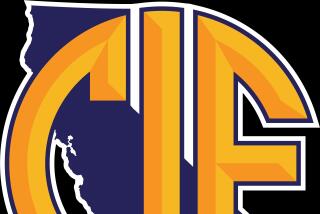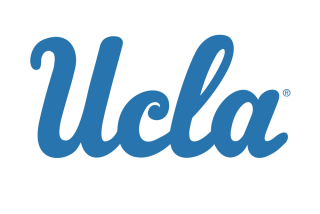NCAA to Meet on UNLV Case : Basketball: School says it will provide new information.
- Share via
The NCAA Committee on Infractions will meet later this month to consider new information that could cause the body to alter its ruling barring the University of Nevada Las Vegas from defending its NCAA basketball title.
The committee announced on July 20 that UNLV will be ineligible for postseason competition after the 1990-91 basketball season as a final penalty stemming from the infractions case that caused UNLV Coach Jerry Tarkanian to take the NCAA to court 13 years ago.
Immediately after the ruling was announced, UNLV President Robert Maxson said the school would appeal, and its appeal and the Committee on Infractions’ response were scheduled to be heard by the NCAA Council’s Division I Steering Committee during the council’s meeting next week in Kansas City, Mo.
However, the matter will not be heard by the council because of a request by UNLV officials to present unspecified new information to the Committee on Infractions, D. Alan Williams, the chairman of the six-member committee, said Tuesday. The committee will hold a special meeting Oct. 28 in Chicago to consider that information.
The July ruling was a result of the committee’s review of the 1977 infractions case in which the NCAA placed the UNLV basketball program on probation, with sanctions that included two-year bans on postseason competition and television appearances, and sought to have Tarkanian suspended.
When the NCAA ordered UNLV to “show cause” why the school shouldn’t suspend Tarkanian for two years or be penalized further, he obtained injunctions in District Court in Las Vegas against UNLV and the NCAA that allowed him to stay in his job while the school served the penalties assessed against it.
The case went all the way to the U.S. Supreme Court, which ruled in favor of the NCAA in December, 1988.
Last March, the two sides reached an agreement in which Tarkanian’s injunction against UNLV was allowed to stand but that against the NCAA was lifted, allowing the Committee on Infractions to rule on the 1977 “show cause” order.
Speaking at a news conference Tuesday, Maxson noted that the committee has made no promises that it will throw out the ban on postseason play, which Maxson has called unreasonable. But he said he believes the committee’s willingness to study the matter again is a “clear signal” that the penalty might be changed in some manner.
However, Williams, a University of Virginia history professor, said the committee is simply giving UNLV the same right it would give any school that would ask the committee to hear new information in a case. He said UNLV approached the committee a week ago and asked for another hearing to present new information.
“They (school officials) believe they have new evidence relative to the ‘show cause’ order,” he said, “and new evidence is what they will present. The committee will not bargain.
“Quite frankly, the committee was perfectly prepared to go through with the appeal hearing, but the institution would like to provide additional evidence. They apparently have the ability to say some things now that they could not say earlier. The committee made no commitments and will not negotiate, but it is prepared to listen.”
In their first appearance before the committee, UNLV officials asked that no further action be taken in the ’77 case because of the “hardship” the school endured during 13 years of litigation, but noted that Tarkanian might, in spite of his injunction, agree to a limited role in off-campus recruiting.
Tuesday, Brad Booke, UNLV’s special counsel for NCAA compliance, said the school is considering several “alternative penalties,” including a loss of scholarships or having Tarkanian sit out postseason competition. Booke said several options have been discussed with Tarkanian, who did not attend the news conference.
In an interview Tuesday, Maxson acknowledged that UNLV would approach the committee with “a different look,” but declined to discuss the school’s plans.
“If we go in with a good-faith effort to resolve this, I’m confident we can reach a solution favorable to both the NCAA and the university,” he said.
By appearing before the Committee on Infractions again, UNLV does not waive its right to appeal. Should UNLV decide to appeal the decision reached by the committee after the Oct. 28 session, the next chance to be heard would be at the NCAA panel’s January meeting, Williams said.
More to Read
Go beyond the scoreboard
Get the latest on L.A.'s teams in the daily Sports Report newsletter.
You may occasionally receive promotional content from the Los Angeles Times.










